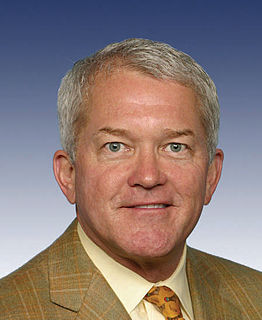A Quote by Greg Grandin
Starting in the early 1800s, Southerners in the United States began to defend slavery as their 'peculiar institution,' and northerners didn't mind, since the phrase suggested that chattel bondage was quarantined from the rest of the nation: that it was, or soon would be, a relic of its past and would not define its future.
Related Quotes
Converting the war into an antislavery crusade was a brilliant move on Lincoln's part, and it resulted in a surge of voluntary recruits into the Union army. But this did not last. Northerners may have disapproved of slavery in the South but, once the bloodletting began in earnest, their willingness to die for that conviction began to wane. [...] Lincoln faced the embarrassing reality that he soon would have no army to carry on the crusade.
The division of the United States into federations of equal force was decided long before the Civil War by the high financial powers of Europe. These bankers were afraid that the United States, if they remained in one block and as one nation, would attain economic and financial independence, which would upset their financial domination over the world. The voice of the Rothschilds prevailed... Therefore they sent their emissaries into the field to exploit the question of slavery and to open an abyss between the two sections of the Union.
In no circumstance would the United States or any other nation have the right to mount a military invasion to overthrow another government for the ostensible purpose of achieving disarmament. Rather, the United States would respect the Charter of the UN and would strive to achieve disarmament and settle the differences among nations through peaceful diplomatic means.
But we also know that the very founders that wrote those documents worked tirelessly until slavery was no more in the United States. I think it is high time that we recognize the contribution of our forbearers who worked tirelessly, men like John Quincy Adams, who would not rest until slavery was extinguished in the country.
Slavery existed before the formation of this Union. It derived from the Constitution that recognition which it would not have enjoyed without the confederation. If the States had not united together, there would have been no obligation on adjoining States to regard any species of property unknown to themselves.
Breaking the United States up into a number of pieces could be very good for the integration of those new nations with the rest of the world and the international law whose primary enemy is now the United States government. I think that it would be very good for democracy, for people to be within some hundreds of miles of their nation's capital, as they are in many other countries, so that they didn't have to travel thousands of miles to protest, to exercise their First Amendment rights, but that is the current state of affairs in this overly large, imperial nation.
The presence of the blacks is the greatest evil that threatens the United States. They increase, in the Gulf States, faster than do the whites. They cannot be kept for ever in slavery, since the tendencies of the modern world run strongly the other way. They cannot be absorbed into the white population, for the whites will not intermarry with them, not even in the North where they have been free for two generations. Once freed, they would be more dangerous than now, because they would not long submit to be debarred from political rights. A terrible struggle would ensue.
The United Nations is the preeminent institution of multilateralism. It provides a forum where sovereign states can come together to share burdens, address common problems, and seize common opportunities. The U.N. helps establish the norms that many countries - including the United States - would like everyone to live by.
The Soviet Union began by banishing God. The United States began as a community of people who wanted to worship God as they chose. . . Man does not live by bread alone. Those in the United States whose desire to create a strictly secular society is as strong as Lenin's was should study this Cold War lesson closely. Communism was defeated by an alliance spearheaded by 'one nation under God.'






































